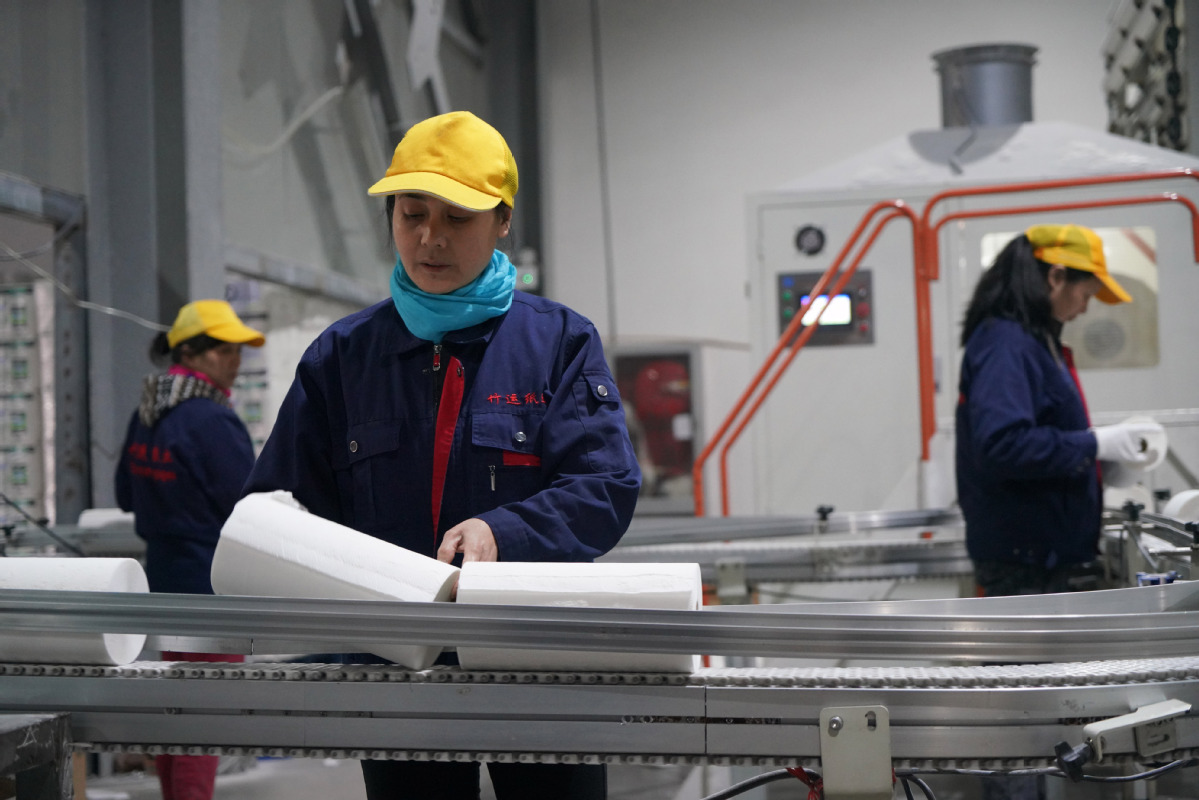Domestic industry taking big green strides


With more than 4.9 million new energy vehicles on China's roads, spent car batteries are also a major environmental concern, and the government is working hard to solve the problem.
In 2018, the Ministry of Industry and Information Technology and five other government bodies published a guideline on management of the recycling and reuse of spent batteries.
The guideline was aimed at introducing an "extended producer responsibility" system in the industry under which manufacturers will shoulder the responsibility of disposing of spent cells.
Meanwhile, a guideline the ministry published in July 2018 pledged to build a "traceability management system" that will cover every procedure related to batteries, from production to recycling and reuse.
In 2020, 85 vehicle battery recycling companies were registered in China, bringing the total number of such companies in the nation to 242, according to corporate information tracker Tianyancha.
Zhou Zerun, a technical expert in the battery operation department of Chinese electric carmaker Nio, said the company has established an 800 million yuan ($123.68 million) joint venture with partners including CATL, China's largest automotive lithium-ion battery maker.
The JV's goal is to not just recycle spent batteries, but carry out the full-life cycle management of batteries, from upstream supply chains, production and vehicle service, decommissioning and finally material recycling, Zhou said.
Amid China's strong commitment to green manufacturing, foreign companies are also partnering with local suppliers to better protect the environment while producing high-quality products.
US smartphone giant Apple Inc, for instance, has set strict requirements and asked its suppliers to perform audits of their energy use and then implement projects to reduce their carbon footprint.
In 2019, nine additional Apple supplier facilities received the Ministry of Industry and Information Technology's green factory designation, bringing the total number of Apple supplier facilities awarded this designation to 28, according to Apple's Supplier Responsibility 2020 Progress Report. Apple is also supporting the China Electronic Standardization Institute by helping to develop green standards for electronics manufacturing in China.
One of the best examples of Apple's green initiatives in China is water stewardship. In Kunshan, Jiangsu province, Apple has been working to enroll suppliers in the area in its clean water program for many years, integrating water conservation practices into operations.
Later, Apple realized that conservation alone is not enough when it comes to water in Kunshan and many other places in the world. In 2018, the company launched a partnership with the Alliance for Water Stewardship to elevate its supply chain to a new level of environmental sustainability.
AWS is a global program that fosters collaboration between businesses, governments and civil society, offering a framework and standard for water stewardship. Water stewardship requires companies to take a broader view, working transparently and collaboratively with a broad range of stakeholders to take better care of precious water resources in their basins.
"I explain water stewardship to companies as responsible management of something they don't own," said AWS Regional Manager Xu Zhenzhen, who trains companies to apply stewardship concepts to their operations in preparation for earning AWS certification. "Without understanding where your water comes from, you can't understand the dynamics. We're talking about upstream and downstream, your impact on others, and how you are going to be affected by water quality or scarcity issues," Xu said.
The AWS certification process requires companies to collect information about water quantity and quality in their basin, and to understand source water security and risks. It also requires them to understand how their wastewater discharge impacts local water quality and habitats.
Xu coached companies on how stewardship is not just about environmental protection, but also good business, helping to improve relationships with neighbors and local governments.
Flexium, an Apple supplier of flexible circuit boards located in Kunshan, was the first company in the electronics industry to earn an AWS gold certification.
Cao Bo, Flexium's environmental compliance manager, said: "After Xu introduced the AWS certification to us, we decided to pursue it. We felt we had to make that extra effort."




































